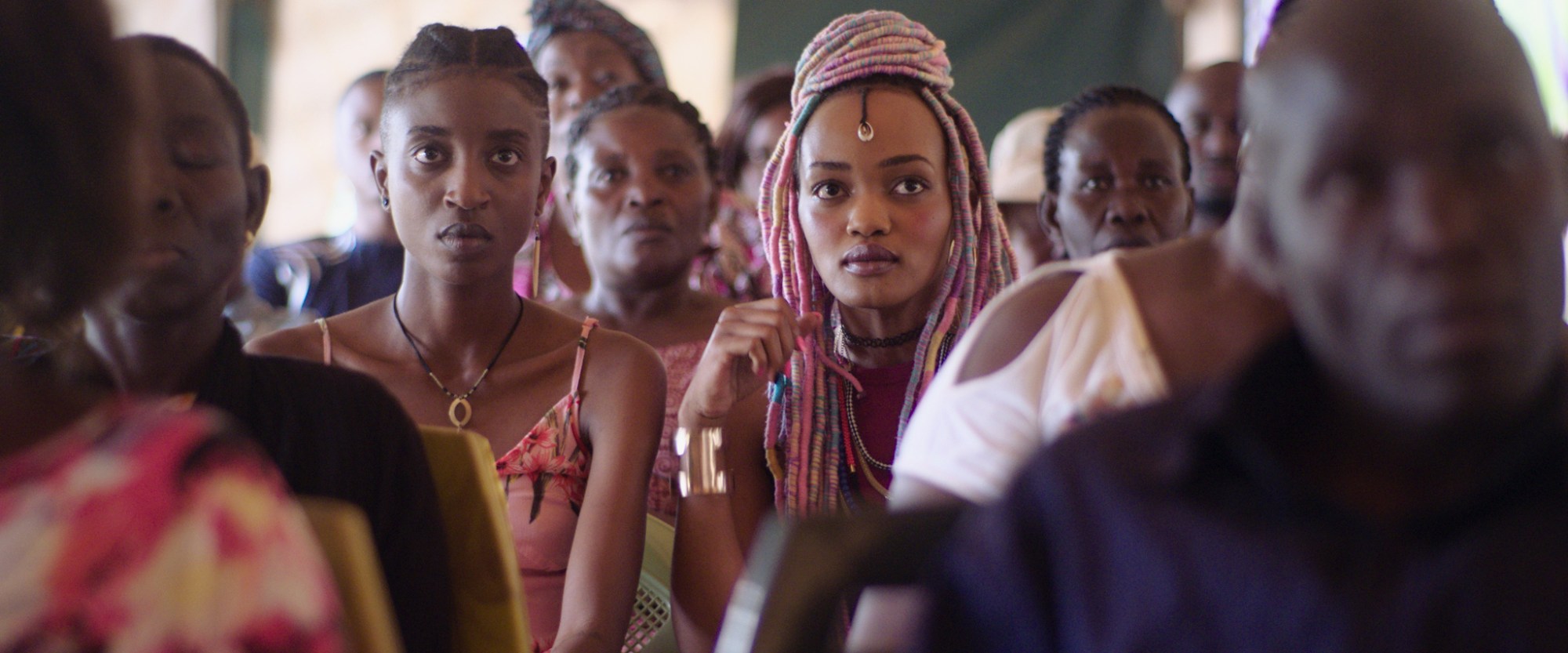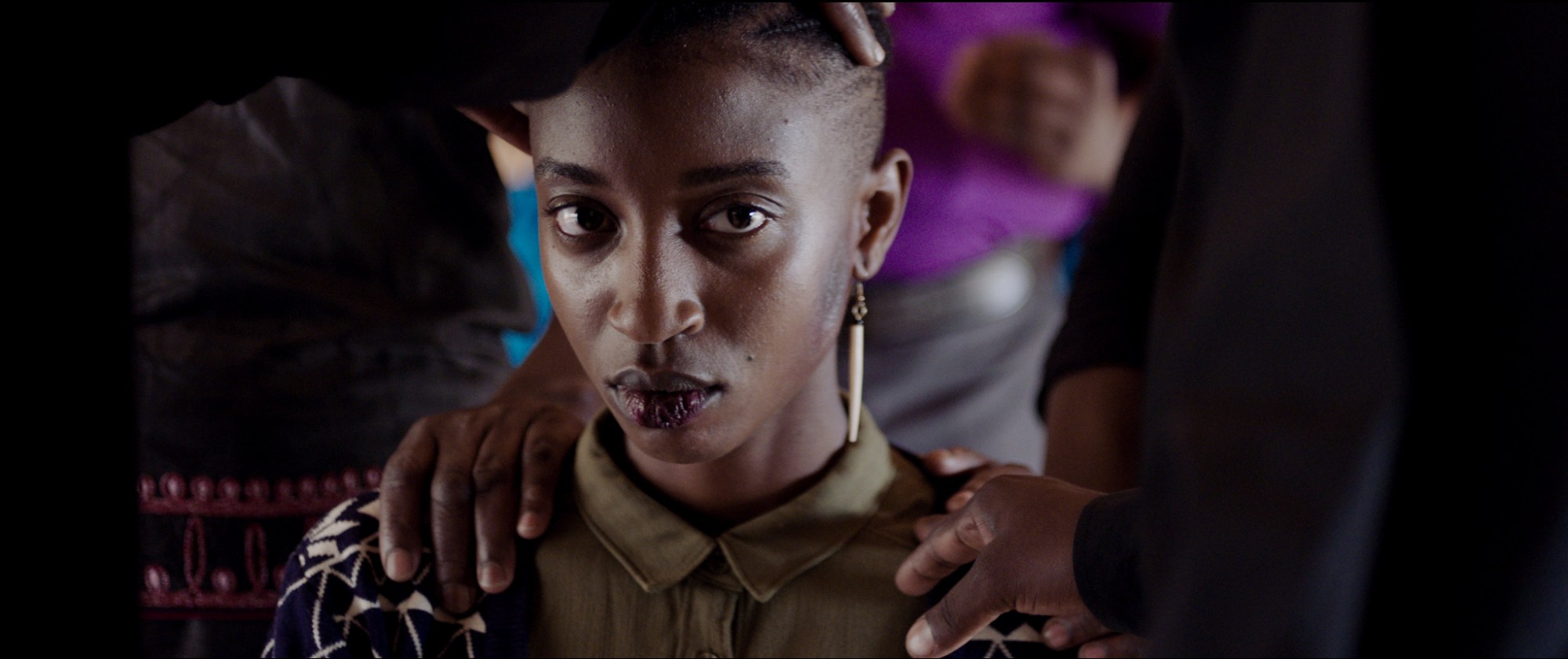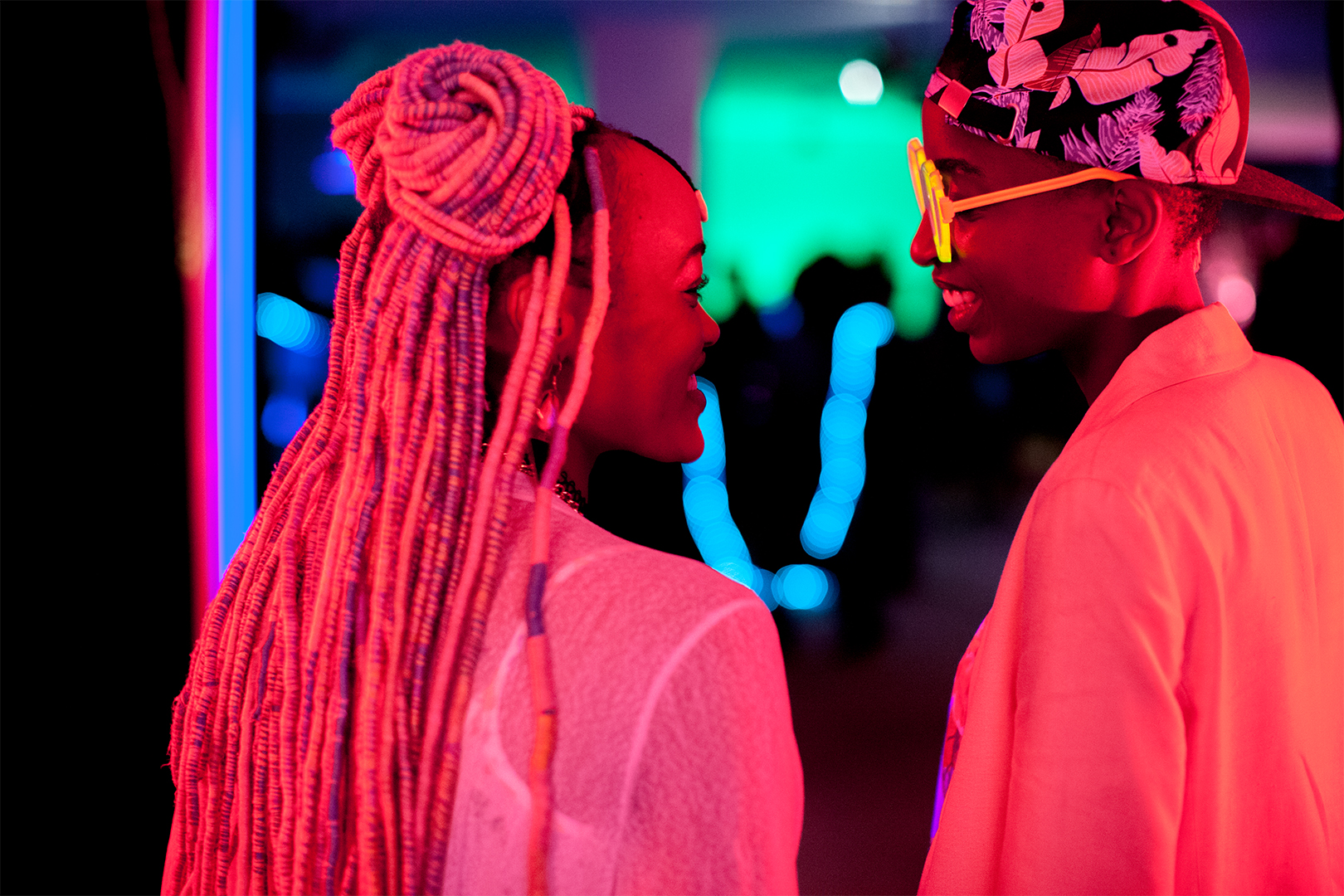When director Wanuri Kahiu set out to make Rafiki — a riveting new film that follows a blushing relationship between two high school girls in Nairobi — she might not have anticipated that it would cause a stir. On one hand, cinephiles just celebrated its world premiere at the Cannes Film Festival; it’s the first Kenyan movie in the festival’s 71-year history to ever make the official selection. But back in Wanuri’s home country, Kenya’s politicians and anti-LGBT advocates have successfully campaigned to stop it from being released. They claim its positive stance on queer relationships is a dangerous message that shouldn’t be spread, which seems strange when you see it. Strip Rafiki back to its bones, and you’re left with a touching, gentle love story that does more to champion the beauty of Kenyan identity than tear it apart.

The film follows Kena and Ziki, two teenage girls who fall for each other, somewhat in secret, in the summer before they’re forced to leave high school and face the real world. Kena, whose shy and modest demeanour dampens her dreams of becoming a doctor one day, is beguiled by the feisty Ziki, whose love for dancing and dozing around in the sun with her friends shapes her care-free days.
As their fathers are fighting against each other in a bid to win the town’s local election, there are already plenty of eyes focussing on their every move, making sure they don’t step out of line. But people are catching on to their closer-than-normal relationship, and in a society that seems to reward rather than scrutinise homophobic behaviour, Kena and Ziki’s lives are put on the line.
“At one point, I even felt like I couldn’t complete the film, but you see the people around you and you’re reminded that this is bigger than you.” — Sheila Munyiva
Samantha Mugatsia and Sheila Munyiva, who play Kena and Ziki, are sitting on a bougie rooftop in Cannes, fresh from a photoshoot. Rafiki’s premiere is happening tonight, but neither seem apprehensive or nervous — instead, they’ve had trust in this project since the very beginning. “Meeting Wanuri was like a moment of serendipity,” Samantha smiles. The pair first spoke at a mutual friend’s pop-up shop, where Wanuri introduced Samantha to the story of these two girls she felt compelled to tell. They stayed close together, as did the whole team, throughout the film’s journey from script to screen. “Our relationships were grounded in love and trust,” she adds, “and we used that to create the film’s energy.” There’s something quite special, almost universal, about that energy too. “When I was reading the script, I fell in love with how much it reminded me of falling in love — especially in the beginning when it’s so magical,” Sheila says. “For me, it translated to the same magic I felt with my boyfriend.”

While we usually scoff at heterosexual actors being labeled ‘brave’ for taking on queer roles in American and British cinema, the consequences are much more palpable and serious for similar stars in Kenya. I wondered if Samantha or Sheila had ever felt hesitant about taking on these roles which, for better or worse, are bound to impact the kind of movies they make in the future. “The first week on set I really had a difficult time,” Sheila admits. “At one point, I even felt like I couldn’t complete the film, but you see the people around you and you’re reminded that this is bigger than you; it has nothing to do with how your name will be tainted. I sat down with myself, and realised that this was so important to so many people.”
Had they come to terms with the fact that their on-screen relationship has pretty much rendered them queer role models in Kenya? Clearly, that’s something they don’t want to take credit for too quickly. “There are [already] tremendous people who fight for the rights of LGBTQI people in Kenya,” Sheila says. “Within the community, there are trailblazers who have done more than we have — it’s just unfortunate that these things have to happen on the down low. Samantha and I might be the first public figures that guys would see — based on our characters — but fantastic role models are out there already!”
“We’re tired of telling stories from Africa about disease, poverty and corruption. Kenya is seen as ‘backwards’ because those are the only stories you know about us.” — Sheila Munyiva
We’re often ignorant of that fact, aren’t we? That grassroots movements are doing the work on the ground while we scold anti-LGBTQ governments from afar, and claim we’re doing the hard work. Having grown up in nations where the rights of the LGBTQI people have been already been publicly recognised, we’ve developed a toxic, backwards view of what life in cities like Nairobi is truly like.

Times have changed: Samantha points out that eight years have passed since the new constitution in Kenya was passed, that included a clause demanding all citizens be treated equally, regardless of their sexual identity. The country’s youth are profoundly more liberal now than they were back then, but cinema, Samantha thinks, has played a pivotal part in maintaining that false narrative. She’s keen to see Rafiki make the change the country’s cinema desperately needs. “We’re tired of telling stories from Africa about disease, poverty and corruption,” she lambasts, clearly passionate about the necessity of change. “Kenya is seen as ‘backwards’ because those are the only stories you know about us. You think we live on trees? This is 2018! That’s why we think this is such a pivotal time to tell this story. Because what other time are we going to do it?”
It’s so easy to weaponise the stories of queer people, and transform them into something more political than they set out to be. While Rafiki has to touch on the idea of antagonism, it works best when it removes itself from the danger of the outside world, retreating with Ziki and Kena to their own sweet bubble instead.
That positive portrayal of queer love is what makes its ban so heartbreaking, but could there ever be a silver lining to it? Sheila thinks so. “The fact that the film has been banned has made people even more aware of it,” she smirks. “I’ve seen a rebellion [forming]… people want to move heaven and earth to watch it!” She compares the film’s unwritten future to the work of a famous playwright, Ngugi wa Thiong’o, whose staunchly political work led to him being exiled… It seems the power of quietly anarchic art is starting to prevail in Kenya. “It might not be the reality for us now,” Sheila concludes, “but very soon, it will be.”
Rafiki premiered at the 71st Cannes Film Festival.
